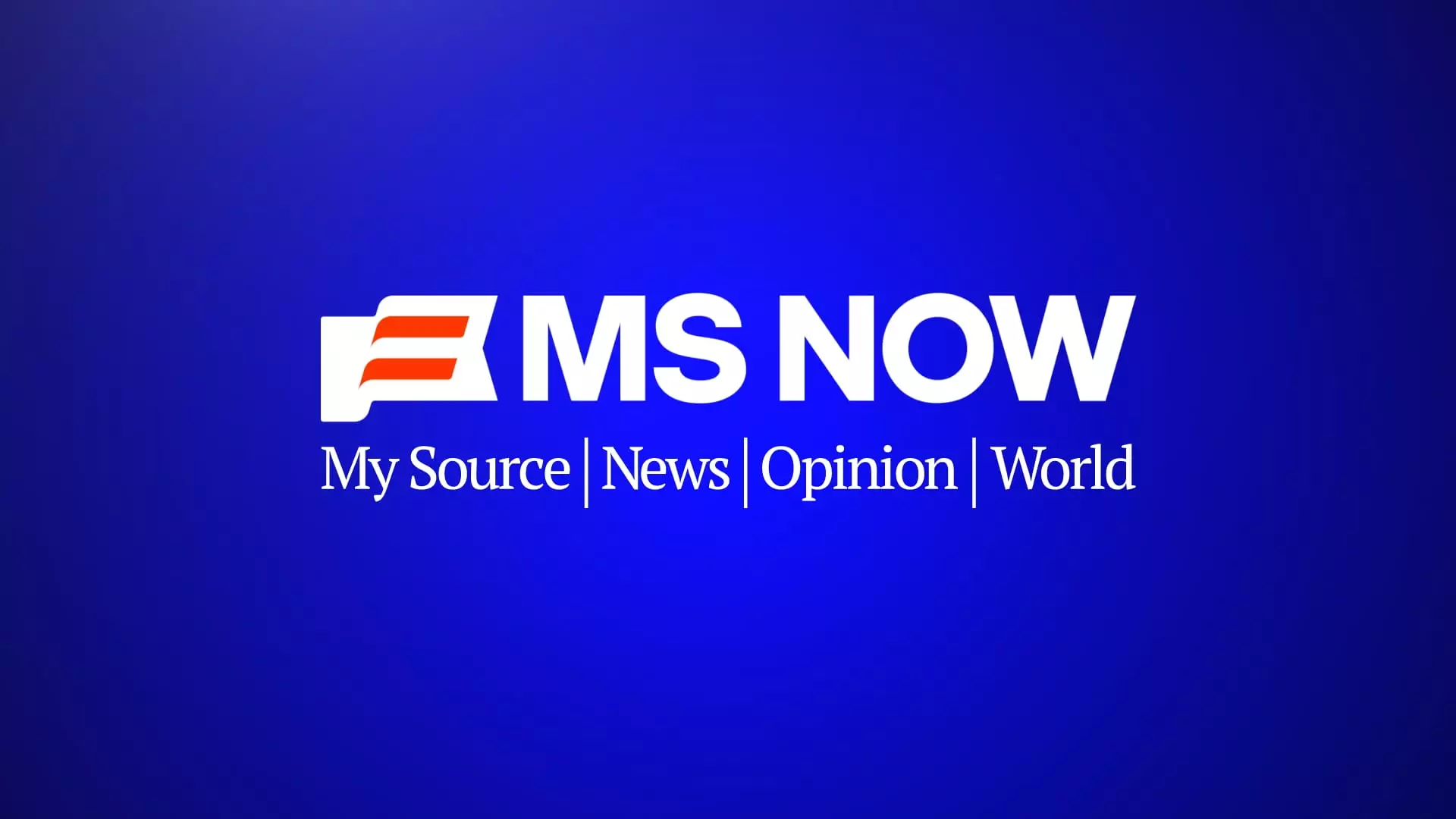In a startling departure from its established identity, MSNBC is set to shed its iconic peacock logo and change its name later this year, marking a significant transformation in its branding. This move signals more than just a cosmetic update; it reflects a strategic effort to redefine the network’s independence amidst a broader corporate restructuring under Versant, a new entity emerging from the separation of NBCUniversal from Comcast. While the company insists that the core journalistic mission remains unaltered, the decision to humanize the brand with a new name—My Source News Opinion World, or MS Now—raises essential questions about authenticity, trust, and the true purpose of news media in today’s polarized climate.
This shift, announced internally and at odds with previous assurances by leadership, reveals a nuanced conflict between corporate branding ambitions and journalistic integrity. Executive Mark Lazarus initially suggested stability, but subsequent internal communications from President Rebecca Kutler make it clear that this rebrand is aimed at carving out a distinct, independent identity for MSNBC. The message appears to be driven by business imperatives: establishing a dedicated newsroom, attracting prominent journalists, and creating a platform that can stand apart from its past connections to NBC News. This raises concerns about whether the network is prioritizing commercial independence at the expense of its journalistic independence, a delicate balance that history has shown is often difficult to maintain.
Rebirth or Rebranding as an Exit Strategy?
The decision to relabel MSNBC and other Versant properties, including logos stripped of their familiar peacock insignia, is unlikely to be a mere branding exercise. It signals a conscious effort to reset the network’s public image—possibly as a means to attract a new demographic or to insulate the network from its perceived political affiliations with its parent company. The launch of a substantial marketing campaign underscores the importance Versant places on this rebrand, hinting that they see it as a critical step in establishing a fresh, credible voice amid ongoing debates over media bias and political influence.
However, this rebranding also underscores a troubling trend: corporations viewing news outlets as malleable assets rather than trustworthy institutions. The move risks turning MSNBC into a product tailored for specific audiences rather than a bastion of impartial reporting. The emphasis on creating a “modern, independent” newsroom, staffing up with journalists from different outlets, seems promising on paper but leaves open the critical question: can a network truly maintain journalistic integrity while being a corporate spin-off aiming for market differentiation? History suggests such operations often walk a tightrope between independence and corporate interests, with trust sometimes suffering at the altar of branding success.
Implications for the Media Landscape and Public Trust
This rebranding saga comes at a pivotal moment in American media, where trust in news sources continues to erode amidst accusations of bias, sensationalism, and corporate influence. MSNBC’s efforts to establish an independent entity might appear as an attempt to regain some credibility. Yet, the timing and manner of the change fuel skepticism: is this genuinely a pursuit of journalistic excellence or a calculated strategic move to preserve market share in a highly competitive environment?
From a center-left liberal perspective, this development is both promising and concerning. On the one hand, the emphasis on building a distinct newsroom and fostering journalistic independence is commendable. The inclusion of diverse voices from reputable outlets signals a potential strengthening of journalism’s watchdog role. On the other hand, the clean break from NBCUniversal might be more about protecting corporate interests and market positioning rather than an authentic commitment to unbiased reporting.
What remains critical is whether these structural changes will translate into substantive editorial freedom or whether they are merely cosmetic. As viewers, we should remain vigilant, questioning whether MSNBC’s new branding genuinely aligns with transparent, balanced reporting or if it’s a strategic façade designed to maintain relevance in a turbulent media environment. The risk of losing sight of journalism’s core mission—serving the public with truthful, fair, and comprehensive coverage—becomes ever more pronounced when corporate branding and profit motives overshadow the pursuit of truth.

